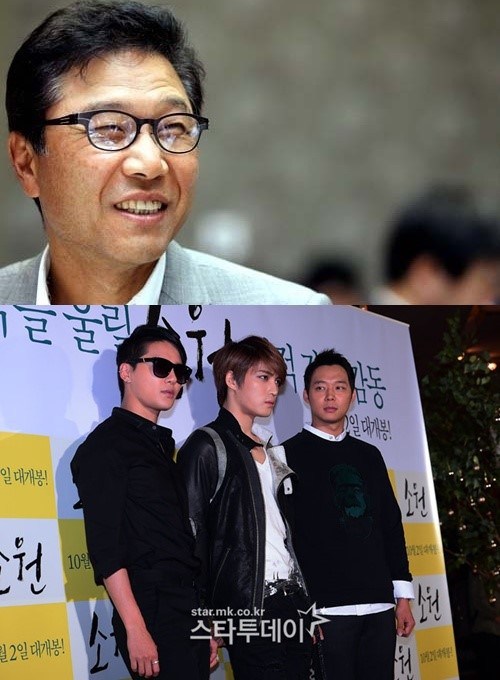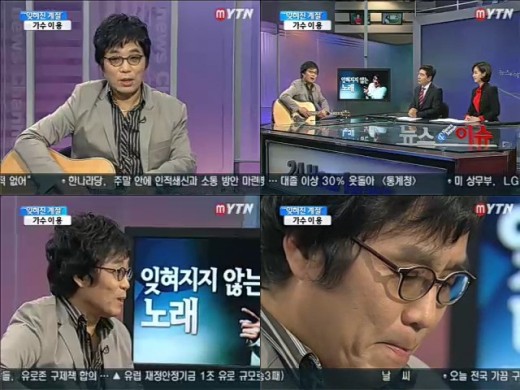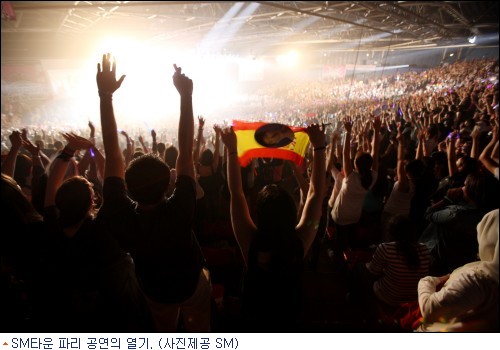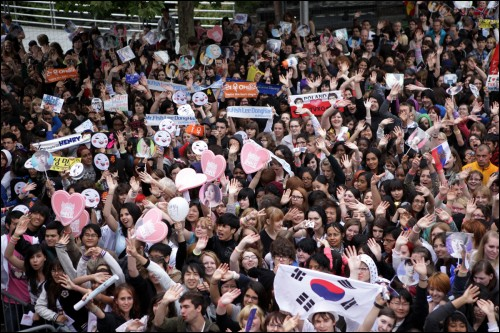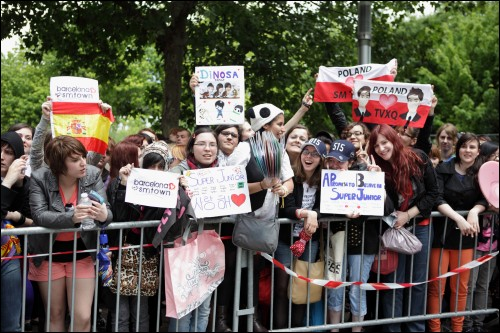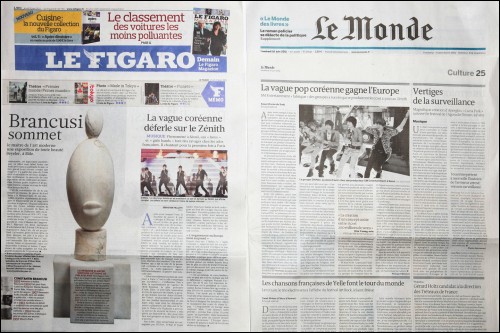[News] 111017 Lee Soo Man on his system of management, upcoming groups M1 & M2, and his dreams
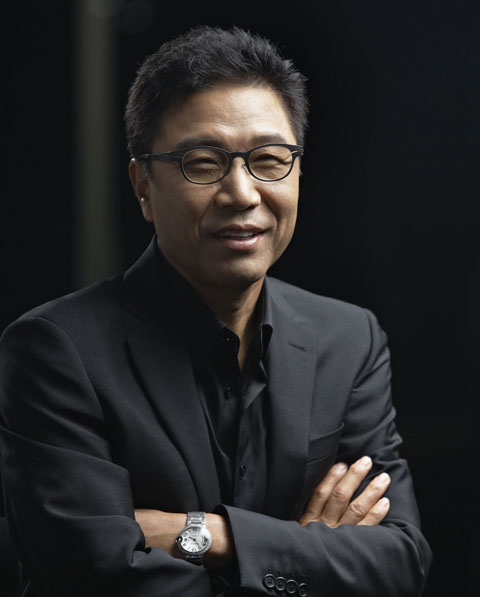
SM Entertainment‘s mastermind, Lee Soo Man (60), recently sat down with Chosun for an interview, where he revealed his thoughts on a variety of topics, including his management system, his new groups ‘M1‘ and ‘M2‘, and his possible venture into the American market. Check out his interview below!
> The biggest contributing factor to Kpop’s widespread success is the long term contracts:
Lee Soo Man became the first person in the Korean entertainment industry to implement a systematic and scientific management system. He picked trainees to foster into idol stars, who all signed 13-year contracts. By doing this, he essentially became the principal of a school of talented students.
However, these long term contracts have been controversial and often referred to as ‘slave contracts’ (after negotiations with the Fair Trade Commission, the length of the contract term has been reduced to 7 years if artists are only promoting within Korea, 10 years if going overseas). 13 years is a long time to the trainees, but it’s also a long time for the management as well, since they are making a 13 year promise to take responsibility in transforming the trainees into stars.
Lee Soo Man cited these long term contracts as the biggest contributing factor to K-Pop’s widespread success all over the world.
He stated,
Even the U.S. couldn’t establish a management system like ours. Picking trainees, signing a long term contract, and teaching trainees for a long period of time, this just can’t happen in the U.S. U.S. agencies are hired as sub-contractors after an artist has grown and gained popularity on their own. As a result, the agencies only play roles of sub-contractors, and can’t make long term investments in singer-hopefuls.
However, in Korea and Japan, whose cultural industries developed later, agencies were free to make such contracts. That’s why we have been able to make these long term investments.
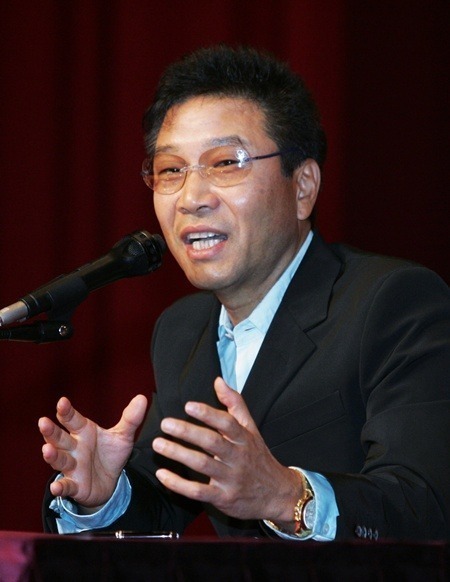
While on the topic of ‘industries’, the reporter took the opportunity to question Lee Soo Man about “CT”. They asked, “You came up with the word CT (Culture Technology). What is the secret to becoming the winner in the CT industry?”
Lee Soo Man replied,
“The IT (information technology) industry is often said to be a high risk-high profit industry. However, CT is an industry with an even bigger risk-profit ratio. In an industry like this, the most important thing is to avoid things that happen by chance, or only once.
To give an example, a talented artisan possesses pottery making skills that are unrivaled by anyone. His skills lie in his sense of touch and his fingertips. If you want to learn these skills, you have no choice but to train under him. However, if this skill can be recorded carefully and taught to disciples, and if he could pass this skill down successfully and receive copyright fees – this could become an industry.
This is what SM Entertainment is trying to do. Whatever skills I, or one of our employees possess, are written out and passed down through training and education. Only then can something become continuous. If this kind of system cannot be established, everything will only have happened by chance and end as a one-time occurrence.”
He also added, “People worry that without Lee Soo Man, SM will come to an end, so that’s why a ‘clone’ has been made to take the place of Lee Soo Man.”
He revealed that this ‘clone’ is a team made up of six people who are specialists in areas like dance, singing, and mixing music. He stated, “Something better than a copy of Lee Soo Man will be produced, and SM will become even bigger.”
– > Patience is Lee Soo Man’s secret to his management:
The entertainment industry is essentially about making the right choices; choosing the best singer, choosing the best staff, choosing the best music. Knowing this, Lee Soo Man handles each decision with extreme patience. Before making a choice, he looks over almost an excessive amount of options, but if he thinks that there is no answer, he will cleanly give it up. There have been many occurrences of ‘sunken costs’ that could not be recovered, but Lee Soo Man doesn’t seem to care. Rather than risking his neck for a product that is ‘so-so’, he is willing to invest the time and money until the best comes out.
Taking this into consideration, Lee Soo Man introduced the topic of his upcoming group.
SM Entertainment’s new group will be made up of two sub groups who have the same concept. One group will promote in Korea, while the other group will promote with the same song in China. The groups are currently referred to as ‘M1‘ and ‘M2‘.
In order to find the perfect title song for these two groups, SM held an event called ‘Music Camp’ in Denmark and Norway in August. The event drew 50 composers from all over the world, who came to compose a song for SM Entertainment over 3 to 6 days. SM Entertainment showed the composers M1 and M2, and once they explain the concept they wanted and the rhythm they seeked, the composers were free to come up with their own songs.
Even though they held this event twice already, SM Entertainment still hasn’t been able to pick a suitable title song for M1 and M2. Lee Soo Man stated,
“If you look at it from one point, we have thrown away a lot of money. However, we’re always doing things like that. SM Entertainment has three sources of power: training, adherence to the system, and songs. It usually takes about 4 years to launch a new group. In order to write one song for TVXQ, 50 people had gathered. It required around 4 billion won ($3.5 million USD) for TVXQ to make their debut. In addition, another 4 billion Korean Won was required for album production and promotional fees.”
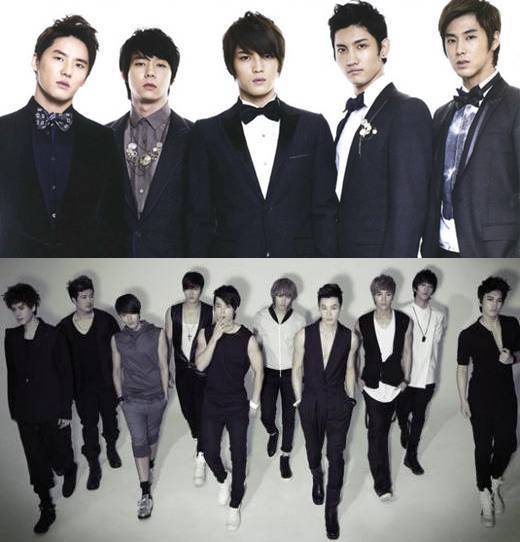
Lee Soo Man then went on to explain how his patience and methodical system allowed him to create super idol groups, TVXQ and Super Junior.
After BoA’s successful venture into Japan, the SM Entertainment CEO wanted to create a group that could be successful not only in Asia, but all over the world. Since he had a limited number of trainees, much deliberation and focus was needed to decide how to make this group happen. Lee Soo Man decided to choose the best members out of several trainee teams to create a new group that could be considered “major league”. This group was none other than TVXQ.
As for Super Junior, Lee Soo Man revealed, “All the other groups were on the verge of being dissolved. However, since they signed contracts with us, we had to take responsibility. So out of these groups, the group that we raised to do well both in music and variety shows was Super Junior. They put in their sweat and tears to survive [in the industry], and we felt bad [watching them] so we tried to help them.”
And what about SM Entertainment’s plans for expansion into the U.S.?
The reporter asked, “SM TOWN is going to be held at Madison Square Garden in New York, are you going to be making an official venture into the U.S.?” Lee Soo Man replied,
“No, it’s not like that. Rather than venturing into the U.S., we are just holding a concert as a consolation for the people we consider a part of an imaginary country called SM TOWN. The markets of China and Asia will be bigger than the U.S. market. Thus, it isn’t really necessary to go into the U.S. In the near future, when a ‘Hollywood of Asia’ appears, the cultural center of the world will make a big shift to Asia. Asian songs are not well known in the U.S.? Totally irrelevant because Asia will soon become the center.”
– > Lee Soo Man’s dreams for the future:
Lee Soo Man is a man who is always dreaming. His current dream involves producing a musical like ‘Billy Elliot’, where he’ll draw different groups from all over the world and have them perform. He revealed that the story would be about a mom and a child arguing over classic and pop music, but end up realizing that better music can be produced when the two are combined. The musical would feature a combination of past and new songs of SM Entertainment.
As this interview was being conducted, the news about Teddy Riley composing SNSD’s new song broke out. When asked to comment about the news, Lee Soo Man commented, “It’s my dream to produce a composer that makes the most money in the world through SM Entertainment.”
Source + Photo: Chosun
Tip: puchicatos
credit: allkpop
Momma’s Source: sharingyoochun.net
Share This

